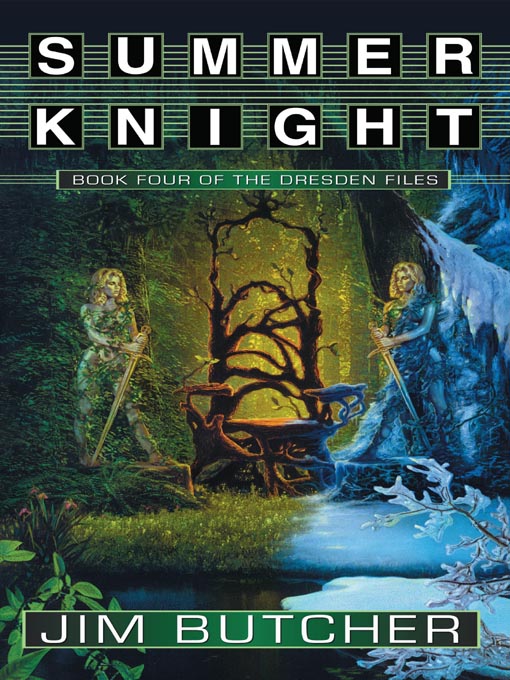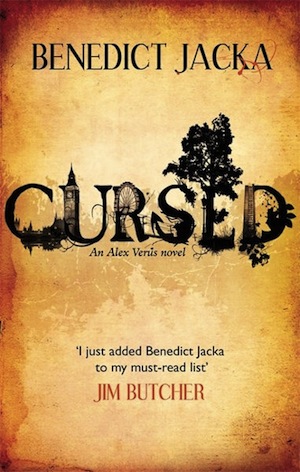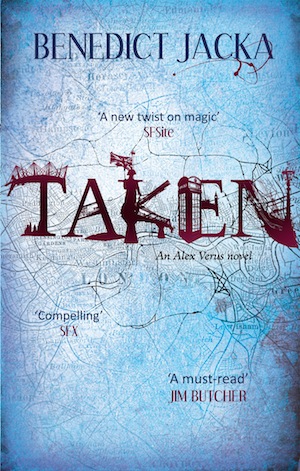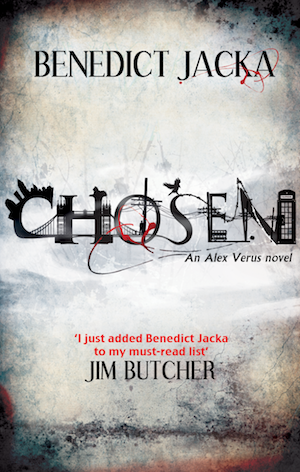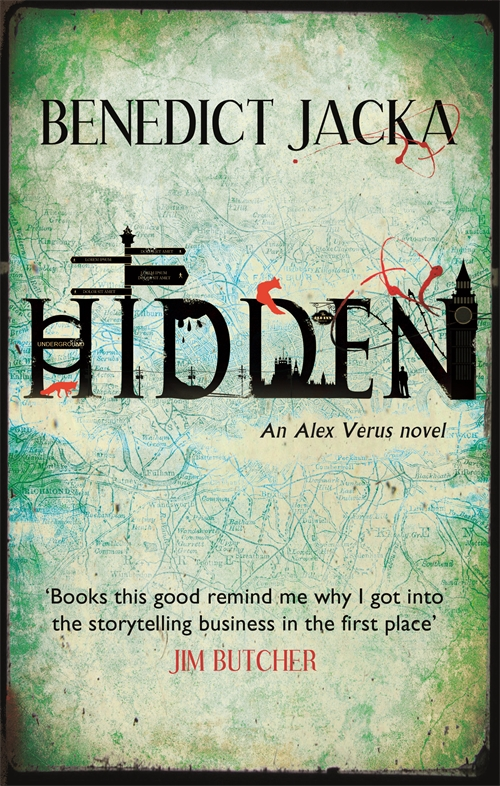Among the top ten things that strike terror into every middle-class, Western parent's heart, along with the possibility that their child may do drugs, drop out of school, and/or get arrested for indecent exposure, is the fear that their child may identify with the character of Bella Swan. (Yuck.) She is passive, stupid and inarticulate in a most infuriating fashion. No, the dreamy look in her eyes when she contemplates either one of her borderline-abusive love interests does not redeem her in any way. This has led many people to wonder, usually right after 'what is wrong with this world, and why do I live here?', whether there are other female characters in Young Adult literature who are worthy of the title 'heroine'. So here I provide some brief sketches of female leads who are not a complete waste of the air they breathe, and may have the potential to inspire young people, or even give an insight into the interactions between femininity and agency in young people today. Some are more successful than others, so I have given each a 'Supergirl Score'; rather than the overall quality of the book, this is meant to reflect the heroic credentials of the character discussed. As Katniss Everdean of The Hunger Games has been widely discussed as the Anti-Swan I've decided to go with a less famous bunch of heroines. There are actually plenty of them out there...
Gallagher Girls, by Ally Carter
Cameron (Cammie) Morgan
 Cammie is one of the few female characters in YA fiction who is allowed to experiment with more than one boyfriend (go Cammie!). Cammie is a student at the Gallagher Academy, an all-girls' exclusive boarding school that trains future spies. You may think this demands an elephant's helping of willing suspension of disbelief, but actually the setting is sufficiently fantastical that it is quite easy to take it's silliness in one's stride, and believe that in Cammie's world it is perfectly normal for parents to sign their children up for a lifetime of morally ambiguous work that risks their safety and often involves shooting people. The Gallagher Academy is a bit like a Spy-Girls' Hogwarts, complete with recurring jokes about teachers (eg. the one who has plastic surgery before each new term because he is on the run), quirky classes (eg. the one which moves to a lower level of basement with each level of student achievement), and the inevitable luxurious dining hall (where students have to make conversation in a different language and regional accent at every meal).
Cammie is one of the few female characters in YA fiction who is allowed to experiment with more than one boyfriend (go Cammie!). Cammie is a student at the Gallagher Academy, an all-girls' exclusive boarding school that trains future spies. You may think this demands an elephant's helping of willing suspension of disbelief, but actually the setting is sufficiently fantastical that it is quite easy to take it's silliness in one's stride, and believe that in Cammie's world it is perfectly normal for parents to sign their children up for a lifetime of morally ambiguous work that risks their safety and often involves shooting people. The Gallagher Academy is a bit like a Spy-Girls' Hogwarts, complete with recurring jokes about teachers (eg. the one who has plastic surgery before each new term because he is on the run), quirky classes (eg. the one which moves to a lower level of basement with each level of student achievement), and the inevitable luxurious dining hall (where students have to make conversation in a different language and regional accent at every meal).
Cammie's story begins in I'd Tell You I Love You, But Then I'd Have To Kill You with her using her spy skills to bend the rules at her exclusive spy school and flirt with a Normal Boy. In this book, the action is instigated by her crush on a boy, but all planning and shenanigans are carried out by Cammie and her crew of trusty female friends, demonstrating the fact that girls can plan, climb, run and break rules. All good things for a young girl to know. The fact that Carrie breaks up with said boy later on is even better - let's be honest, how many people end up in a lifelong relationship with the person they had a crush on in their early teens? It is useful, not to mention refreshingly believable, to portray female characters moving on from relationships. In later books, the plot gets a bit heavier and more melodramatic, as Cammie falls in love with mysterious spy-boy Zach, and discovers she is being pursued by an international organisation of super-spies, for no discernible reason. There is much excitement throughout, and even at her lowest points, Cammie is still an independent individual, who makes decisions for herself, and takes risks for the people she loves.
Supergirl Score: 8/10
Ringmaster, Empty Quarter and Deadlock, by Julia Golding
Darcie Lock
Darcie is a tomboy, reminiscent of George from the Famous Five, but without the cross-dressing. She also breaks multiple layers of social taboo: she plays with boys, makes friends with an older male soldier, as a white girl in Zimbabwe she learns the local language and interacts with the local residents. She is egalitarian in the way she views both herself and other people, and this is one of her greatest strengths. On several occasions, she defeats her adversaries because she has high expectations of herself and they underestimate her; likewise, she escapes some major trouble by befriending people other girls of her race and social class may dismiss: a Zimbabwean taxi driver, the chef on a luxury yacht etc. One of the best things about Darcie, however, is that she is mostly a completely unremarkable teenage girl. Her skills and talents are all acquired and developed through hard work; she is fit because she swims and plays football, she is clever because she pushes herself and tries to think, she makes friends easily because she takes the time to see the world from other people's perspectives. In this respect, Darcie is the best role model of all the heroines examined here. She is an ordinary girl who achieves extraordinary things through hard work and by forming healthy friendships.
Another fabulous thing about Darcie is that she does not have any sticky teenage romances going on with the male characters in her novels. She has friends of both genders, and of varying of social class and racial background. Though she also has enemies, she is often forced to relate to them on a human level, so the books challenge the notion that the world is divided into 'good' and 'bad' guys. Yet they still maintain narrative tension, move at a roaring pace and have satisfying, if not always happy endings. Unfortunately, it appears that Darcie has fallen victim to market forces, and her ordinary extraordinariness is no substitute for a good ole sticky teenage romance, because despite the fact that book 3 ends on a cliffhanger, Golding says 'I'd like to write another but would have to do so on my own time.' This suggests her publishers are not crying out for a continuation of Darcie's story. It's hard out there for real (-seeming) girls.
Supergirl Score: 10/10
Spy Society: An AKA Novel, by Robin Benway
Maggie Silver
Spy Society is derivative of Gallagher Girls. A girl with extraordinary abilities goes to a posh school and proceeds to use these abilities to pursue an attractive boy. In Maggie Silver's case, however, she is instructed to befriend the boy in order to gain access to his father's study, and crack a safe, safe-cracking being a skill she allegedly first demonstrated at the age of three. But all goes awry when she finds herself falling in love with the boy (shock! horror! bet you didn't see that one coming!) and she presumably re-assesses the ethical implications of her intrusive mission. Or maybe she just gets more worried about getting caught, I can't remember.
 Anyway, as a veteran safe-cracker and member of a secret spy organisation, Maggie has a certain aura of competence, and the conceit of her being an experienced super-spy but inexperienced normal teenager is reasonably well-realised and
Anyway, as a veteran safe-cracker and member of a secret spy organisation, Maggie has a certain aura of competence, and the conceit of her being an experienced super-spy but inexperienced normal teenager is reasonably well-realised and
entertaining. She also makes a female friend called Ruby who wears her school blazer inside-out because she is a Rebel.This dilutes the potency of the icky-sticky teenage romance which inevitably develops between Maggie and her mark, and reduces the significance of the boy in Maggie's various decision-making processes. So overall, it is an entertaining little universe, with fun characters that don't contribute too drastically to the perpetuation of female oppression in contemporary society.
Supergirl Score: 7/10
A Spy Like Me, Laura Pauling
Savvy Bent
Savvy is annoying. In the opening scenes of her first novel, she ties up her love interest (Malcolm) and removes his trousers, which is all very funny, but then he gets shot, and she whines about how bad she feels for the next thousands and thousands of words. Savvy is eighteen, and working for her father who runs 'Spy Games' in Paris, sending his customers on a series of missions through Paris which his daughter and some other employees help to set up. Her mother has disappeared, which makes her Sad and Angsty, and leads to a teenage rebellion in which she is reluctant about her job, and skips her training runs. This catches up with her at some point when she decides she needs her fitness for a 'real spy mission', which leads to a 'training sequence' in which she goes for a run and does some sit ups, and then aches all over the day of the mission (really, what was the point in that?). The plot manages to be both complicated and daft, featuring secret spies, evil assassins, and a borderline-psychotic pastry chef. This sort of hinders Savvy's character development, a situation which does not improve in later books. Basically, the series is like a poorly-executed version of the Gallagher Girls. And Savvy really is annoying.
Supergirl Score: 4/10
Investigating the Hottie, by Juli Alexander
Amanda Peterson
First of all, what is with that title? I mean, I had a music teacher once who used to wax lyrical on the immense potential of 'the well-placed cliché', but this is really taking 'does-what-it-says-on-the-tin' to its absolute extreme. I suppose that's all one can expect from someone who voluntarily calls themselves 'Juli', but still, how could title possibly have seemed like a good idea? The book is nowhere near as bad as the title suggests (though that doesn't say much). Also, perhaps surprisingly, the main character (Amanda) is a reasonably inspiring individual. She plays sports, speaks languages, and argues with the adults in her life when they are being, frankly, ridiculous.
However, the entire plot is premised on the idea that there are people who are 'hotties', and people who are 'nerds', and that 'hotties' are more difficult to get to know, sort of like celebrities, or killer whales. The plot also seems to be derivative of both Spy Society and the Darcie Lock novels; in both Spy Society and ItH, the female protagonist is tasked with stalking an unsuspecting teenage boy for the benefits of a nefarious spy corporation; in both ItH and the Darcie Lock novels the protagonist is a tomboy who is forced to look more feminine and is not cool with it. However, a significant difference in the treatment of femininity in the cases of Darcie and Amanda is that Amanda comes to accept looking more feminine, while Darcie invariably manages to mangle her feminine finery, and even uses expensive trinkets to fashion life-saving gadgets, McGuiver-style. Amanda just has a mini-camera and cellphone in her bra. Because that gives Juli a reason to talk about her heroine's boobs. One redeeming feature is that by the end of the book, the 'hottie' is demystified, and revealed to be just another teenager, like Amanda.
Supergirl Score: 6/10
Spark by Rachael Craw
Evangeline (Evie) Everton
Spark, unlike the other novels discussed in this post, has a sci-fi element to its plot: in Evie's world, a genetic experiment gone wrong has resulted in three mutations in the human population: Sparks (hopeless victims), Shields (brave defenders), and Strays (vicious killers). (Don't you just love alliterative jargon?) Evie's life is turned upside down when she discovers she is a Shield, and her Spark is her petite and very killable best friend Kitty. Conveniently, the moment of bonding between Spark and Shield causes the third side of the triangle, the Stray, to awake, drop everything and start planning murder. This is all delightfully silly, mercilessly sacrificing all concessions to common sense on the altar of narrative contingency. Evie is a sympathetic character. But it is disappointing that all her athletic prowess is obtained by means of a magical gene mutation, rather than pure hard work. Craw includes 'training sequences', but in these Evie is mostly encouraged to relax and let her mutant genes take over; this could cause the unfortunate belief in teenage girls that they cannot be physically active or powerful without mutant genes. (It's not true, girls. If you run every day, eventually you will run faster. Fact. Likewise, if you punch things, you get better at punching things. Give it a try.)
Worse still, Craw claims this mutated DNA has the side-effect of making the bearer 'hot', in order to increase their chances of reproduction and perpetuation of the gene. This suggests that there is an objective standard of 'hotness' which for girls is reached through the possession of big boobs, small bums and luscious hair, and for boys through the possession of washboard abs, above-average height and, counterintuitively, long eyelashes. Both genders benefit from razor-sharp cheekbones, for some reason. Back in the real world, which is where most of us are forced to live, people are attracted to each other for all sorts of different reasons, of which some make sense and some really don't. Attraction can occur in response to another person's body language, smell (pheromones are a thing) or even in response to the novelty of being found attractive. Because the 'love' narrative in Spark is discussed in terms of the results of genetically-induced hotness, it fails to engage with any of the real issues of teenagers learning how to conduct romantic relationships. It also radiates silliness into the stratosphere.
Nevertheless, the book was fun. I just wouldn't recommend it to anyone who has not yet had at least two serious relationships, including loss of virginity. Not because the content of the book is in any way raunchy, but because it has the potential to be so catastrophically misleading. Likewise, it should not be read by people who do not have at least a casual acquaintance with sport, lest they become convinced success requires magic genes, rather than buckets of sweat and bloody-mindedness. So despite the fact that Evie is a strong female character who is of pivotal importance for the future of her world, she is let down by the fact that all her achievements are credited to the effects of a mythical gene mutation, rather than her own hard work and ingenuity.
Supergirl Score: 5/10
Gallagher Girls, by Ally Carter
Cameron (Cammie) Morgan
 Cammie is one of the few female characters in YA fiction who is allowed to experiment with more than one boyfriend (go Cammie!). Cammie is a student at the Gallagher Academy, an all-girls' exclusive boarding school that trains future spies. You may think this demands an elephant's helping of willing suspension of disbelief, but actually the setting is sufficiently fantastical that it is quite easy to take it's silliness in one's stride, and believe that in Cammie's world it is perfectly normal for parents to sign their children up for a lifetime of morally ambiguous work that risks their safety and often involves shooting people. The Gallagher Academy is a bit like a Spy-Girls' Hogwarts, complete with recurring jokes about teachers (eg. the one who has plastic surgery before each new term because he is on the run), quirky classes (eg. the one which moves to a lower level of basement with each level of student achievement), and the inevitable luxurious dining hall (where students have to make conversation in a different language and regional accent at every meal).
Cammie is one of the few female characters in YA fiction who is allowed to experiment with more than one boyfriend (go Cammie!). Cammie is a student at the Gallagher Academy, an all-girls' exclusive boarding school that trains future spies. You may think this demands an elephant's helping of willing suspension of disbelief, but actually the setting is sufficiently fantastical that it is quite easy to take it's silliness in one's stride, and believe that in Cammie's world it is perfectly normal for parents to sign their children up for a lifetime of morally ambiguous work that risks their safety and often involves shooting people. The Gallagher Academy is a bit like a Spy-Girls' Hogwarts, complete with recurring jokes about teachers (eg. the one who has plastic surgery before each new term because he is on the run), quirky classes (eg. the one which moves to a lower level of basement with each level of student achievement), and the inevitable luxurious dining hall (where students have to make conversation in a different language and regional accent at every meal).Cammie's story begins in I'd Tell You I Love You, But Then I'd Have To Kill You with her using her spy skills to bend the rules at her exclusive spy school and flirt with a Normal Boy. In this book, the action is instigated by her crush on a boy, but all planning and shenanigans are carried out by Cammie and her crew of trusty female friends, demonstrating the fact that girls can plan, climb, run and break rules. All good things for a young girl to know. The fact that Carrie breaks up with said boy later on is even better - let's be honest, how many people end up in a lifelong relationship with the person they had a crush on in their early teens? It is useful, not to mention refreshingly believable, to portray female characters moving on from relationships. In later books, the plot gets a bit heavier and more melodramatic, as Cammie falls in love with mysterious spy-boy Zach, and discovers she is being pursued by an international organisation of super-spies, for no discernible reason. There is much excitement throughout, and even at her lowest points, Cammie is still an independent individual, who makes decisions for herself, and takes risks for the people she loves.
Supergirl Score: 8/10
Ringmaster, Empty Quarter and Deadlock, by Julia Golding
Darcie Lock
Darcie is a tomboy, reminiscent of George from the Famous Five, but without the cross-dressing. She also breaks multiple layers of social taboo: she plays with boys, makes friends with an older male soldier, as a white girl in Zimbabwe she learns the local language and interacts with the local residents. She is egalitarian in the way she views both herself and other people, and this is one of her greatest strengths. On several occasions, she defeats her adversaries because she has high expectations of herself and they underestimate her; likewise, she escapes some major trouble by befriending people other girls of her race and social class may dismiss: a Zimbabwean taxi driver, the chef on a luxury yacht etc. One of the best things about Darcie, however, is that she is mostly a completely unremarkable teenage girl. Her skills and talents are all acquired and developed through hard work; she is fit because she swims and plays football, she is clever because she pushes herself and tries to think, she makes friends easily because she takes the time to see the world from other people's perspectives. In this respect, Darcie is the best role model of all the heroines examined here. She is an ordinary girl who achieves extraordinary things through hard work and by forming healthy friendships.
Another fabulous thing about Darcie is that she does not have any sticky teenage romances going on with the male characters in her novels. She has friends of both genders, and of varying of social class and racial background. Though she also has enemies, she is often forced to relate to them on a human level, so the books challenge the notion that the world is divided into 'good' and 'bad' guys. Yet they still maintain narrative tension, move at a roaring pace and have satisfying, if not always happy endings. Unfortunately, it appears that Darcie has fallen victim to market forces, and her ordinary extraordinariness is no substitute for a good ole sticky teenage romance, because despite the fact that book 3 ends on a cliffhanger, Golding says 'I'd like to write another but would have to do so on my own time.' This suggests her publishers are not crying out for a continuation of Darcie's story. It's hard out there for real (-seeming) girls.
Supergirl Score: 10/10
Spy Society: An AKA Novel, by Robin Benway
Maggie Silver
Spy Society is derivative of Gallagher Girls. A girl with extraordinary abilities goes to a posh school and proceeds to use these abilities to pursue an attractive boy. In Maggie Silver's case, however, she is instructed to befriend the boy in order to gain access to his father's study, and crack a safe, safe-cracking being a skill she allegedly first demonstrated at the age of three. But all goes awry when she finds herself falling in love with the boy (shock! horror! bet you didn't see that one coming!) and she presumably re-assesses the ethical implications of her intrusive mission. Or maybe she just gets more worried about getting caught, I can't remember.
 Anyway, as a veteran safe-cracker and member of a secret spy organisation, Maggie has a certain aura of competence, and the conceit of her being an experienced super-spy but inexperienced normal teenager is reasonably well-realised and
Anyway, as a veteran safe-cracker and member of a secret spy organisation, Maggie has a certain aura of competence, and the conceit of her being an experienced super-spy but inexperienced normal teenager is reasonably well-realised and entertaining. She also makes a female friend called Ruby who wears her school blazer inside-out because she is a Rebel.This dilutes the potency of the icky-sticky teenage romance which inevitably develops between Maggie and her mark, and reduces the significance of the boy in Maggie's various decision-making processes. So overall, it is an entertaining little universe, with fun characters that don't contribute too drastically to the perpetuation of female oppression in contemporary society.
Supergirl Score: 7/10
A Spy Like Me, Laura Pauling
Savvy Bent
Savvy is annoying. In the opening scenes of her first novel, she ties up her love interest (Malcolm) and removes his trousers, which is all very funny, but then he gets shot, and she whines about how bad she feels for the next thousands and thousands of words. Savvy is eighteen, and working for her father who runs 'Spy Games' in Paris, sending his customers on a series of missions through Paris which his daughter and some other employees help to set up. Her mother has disappeared, which makes her Sad and Angsty, and leads to a teenage rebellion in which she is reluctant about her job, and skips her training runs. This catches up with her at some point when she decides she needs her fitness for a 'real spy mission', which leads to a 'training sequence' in which she goes for a run and does some sit ups, and then aches all over the day of the mission (really, what was the point in that?). The plot manages to be both complicated and daft, featuring secret spies, evil assassins, and a borderline-psychotic pastry chef. This sort of hinders Savvy's character development, a situation which does not improve in later books. Basically, the series is like a poorly-executed version of the Gallagher Girls. And Savvy really is annoying.
Supergirl Score: 4/10
Investigating the Hottie, by Juli Alexander
Amanda Peterson
First of all, what is with that title? I mean, I had a music teacher once who used to wax lyrical on the immense potential of 'the well-placed cliché', but this is really taking 'does-what-it-says-on-the-tin' to its absolute extreme. I suppose that's all one can expect from someone who voluntarily calls themselves 'Juli', but still, how could title possibly have seemed like a good idea? The book is nowhere near as bad as the title suggests (though that doesn't say much). Also, perhaps surprisingly, the main character (Amanda) is a reasonably inspiring individual. She plays sports, speaks languages, and argues with the adults in her life when they are being, frankly, ridiculous.
However, the entire plot is premised on the idea that there are people who are 'hotties', and people who are 'nerds', and that 'hotties' are more difficult to get to know, sort of like celebrities, or killer whales. The plot also seems to be derivative of both Spy Society and the Darcie Lock novels; in both Spy Society and ItH, the female protagonist is tasked with stalking an unsuspecting teenage boy for the benefits of a nefarious spy corporation; in both ItH and the Darcie Lock novels the protagonist is a tomboy who is forced to look more feminine and is not cool with it. However, a significant difference in the treatment of femininity in the cases of Darcie and Amanda is that Amanda comes to accept looking more feminine, while Darcie invariably manages to mangle her feminine finery, and even uses expensive trinkets to fashion life-saving gadgets, McGuiver-style. Amanda just has a mini-camera and cellphone in her bra. Because that gives Juli a reason to talk about her heroine's boobs. One redeeming feature is that by the end of the book, the 'hottie' is demystified, and revealed to be just another teenager, like Amanda.
Supergirl Score: 6/10
Spark by Rachael Craw
Evangeline (Evie) Everton
Spark, unlike the other novels discussed in this post, has a sci-fi element to its plot: in Evie's world, a genetic experiment gone wrong has resulted in three mutations in the human population: Sparks (hopeless victims), Shields (brave defenders), and Strays (vicious killers). (Don't you just love alliterative jargon?) Evie's life is turned upside down when she discovers she is a Shield, and her Spark is her petite and very killable best friend Kitty. Conveniently, the moment of bonding between Spark and Shield causes the third side of the triangle, the Stray, to awake, drop everything and start planning murder. This is all delightfully silly, mercilessly sacrificing all concessions to common sense on the altar of narrative contingency. Evie is a sympathetic character. But it is disappointing that all her athletic prowess is obtained by means of a magical gene mutation, rather than pure hard work. Craw includes 'training sequences', but in these Evie is mostly encouraged to relax and let her mutant genes take over; this could cause the unfortunate belief in teenage girls that they cannot be physically active or powerful without mutant genes. (It's not true, girls. If you run every day, eventually you will run faster. Fact. Likewise, if you punch things, you get better at punching things. Give it a try.)
Worse still, Craw claims this mutated DNA has the side-effect of making the bearer 'hot', in order to increase their chances of reproduction and perpetuation of the gene. This suggests that there is an objective standard of 'hotness' which for girls is reached through the possession of big boobs, small bums and luscious hair, and for boys through the possession of washboard abs, above-average height and, counterintuitively, long eyelashes. Both genders benefit from razor-sharp cheekbones, for some reason. Back in the real world, which is where most of us are forced to live, people are attracted to each other for all sorts of different reasons, of which some make sense and some really don't. Attraction can occur in response to another person's body language, smell (pheromones are a thing) or even in response to the novelty of being found attractive. Because the 'love' narrative in Spark is discussed in terms of the results of genetically-induced hotness, it fails to engage with any of the real issues of teenagers learning how to conduct romantic relationships. It also radiates silliness into the stratosphere.
Nevertheless, the book was fun. I just wouldn't recommend it to anyone who has not yet had at least two serious relationships, including loss of virginity. Not because the content of the book is in any way raunchy, but because it has the potential to be so catastrophically misleading. Likewise, it should not be read by people who do not have at least a casual acquaintance with sport, lest they become convinced success requires magic genes, rather than buckets of sweat and bloody-mindedness. So despite the fact that Evie is a strong female character who is of pivotal importance for the future of her world, she is let down by the fact that all her achievements are credited to the effects of a mythical gene mutation, rather than her own hard work and ingenuity.
Supergirl Score: 5/10







